If your library offers space that outside groups are permitted to use (either for free or as a rental), it’s extremely important that you have a solid, actionable meeting room policy and regularly communicate the requirements of that policy, even with the regular users. Though you are under no obligation to do so, welcoming the public to use a space within the library can be a valuable community asset, providing an opportunity that may otherwise be inaccessible to bring people together for a common goal.
The safety of your staff, yourself, your community and your spaces depends upon a policy that sets clear expectations and guidelines that fit within the constraints of the library’s regular responsibilities. There are a few additional benefits to having a solid, actionable meeting room policy that is regularly reviewed including:
- Guidance for those unfamiliar with your policy to understand whether or not your meeting space is a good fit for their purposes, or if you will be able to accommodate them at all (ex. expected group size may exceed room capacity)
- Familiarity with your own policy minimizes the amount of time spent reviewing the policy if someone contacts you with questions
- Policy that explains your requirements clearly will save time for you and those wanting to use the room
When you start to review this particular policy, there are a few items that are somewhat idiosyncratic to this particular type of policy.
Before I begin, a quick disclaimer: many of the recommendations for meeting rooms have been determined through court cases. This information is publicly available should you wish to dig deeper. You can find some starter information here. However, I am not a lawyer. I have no intention of interpreting these cases for you nor should the information I’m passing along be considered legal advice. As I’ve mentioned before, any policy that you consider ratifying through your Board of Trustees should be reviewed by an attorney (counsel for your municipality is usually a good place to start) to ensure that you are compliant with the most current decisions and are protecting yourself and your library.
Limited Public Forum
If your library opens your meeting room to outside groups, it will likely be considered a limited public forum. This means anyone using your room must abide by open meeting laws. If a group is using the room, anyone walking by has the right to sit in on their meetings, which should be open-door at all times. Staff have the right to sit in and ensure policies are being followed. This should be clearly spelled out so that the group understands the possibility, however unlikely, that someone will wander in, sit down and listen in.
Equitable Use
Article VI of the Library Bill of Rights states, “Libraries which make… meeting rooms available to the public they serve should make such facilities available on an equitable basis, regardless of the beliefs or affiliations of individuals or groups requesting their use.” Provided they agree to all of the terms and conditions in your meeting room policy, a group that may be personally disagreeable to you or your staff likely has the right to use the room. For example, they may have said that meetings of a political nature were not permitted in the library’s meeting room, regardless of the alignment of the politics being discussed. This seems neutral on its surface (the library isn’t allowing ANY type of politics in its meeting room, not just politics with views that may be disagreeable or controversial), but the courts have found that the argument doesn’t really hold in practice.
If you are going to limit use of your library’s meeting room, it must be done based on “reasonable content-neutral time, place or manner restrictions” (Pfeifer v. City of West Allis, 91 F. Supp. 2d 1253 [E.D. Wis. 2000]). If you’ve been to one of the webinars that the MBLC, MMA or several other organizations have hosted on this and similar subjects, you’ll have heard this phrase. While this limits the library’s in it’s ability to limit users of your public meeting room space, that does not mean that you need to endorse the use.
Endorsement Not Required
If an outside group books a meeting room for any purpose that is permitted by your library policy, that does NOT mean that it is a library program. You are within your rights to have your policy clearly state that use of your meeting room facilities does not imply endorsement by the library. The ALA has the suggested wording: “Libraries do not advocate for or endorse the viewpoints expressed in meetings by meeting room users, just as they do not endorse the viewpoints of works in their collections,” but you can decide the most effective way to express this. You may also want to consider making it clear to anyone wishing to use your meeting room facilities that the library may NOT be listed as anything but a location for that particular meeting. Library staff should NOT be collecting registrations or answering questions for any outside group. You are under no obligation to post an outside program on your public calendar. If your calendar program has a private staff view, you can keep your staff informed to make the appropriate arrangements in the room being used, and you can state very clearly on the event post that this is not a library-affiliated program and the library does not endorse the program in any way. If that’s the case, remember that this disclaimer must be used for every program regardless of whether or not it’s a program that the library may consider booking as a library program at a later time. Be upfront with those viewing your calendar and follow through on your policy which has made promises to the meeting room user for every booking.
Usage
You are well within your rights to :
- reserve meeting space for library use first
- reschedule, cancel, or change a meeting if you need to use that room for a library program or special event. From a public service standpoint, a library should do its best to accommodate a new option for someone booking the room for a conflicting date, but that doesn’t mean that once a group has booked a room, you are prevented from having your own library event or offering services in that room if it’s necessary for essential library functions.
- define how much any one organization or individual may use a room in a 12-month period, and how far in advanced a room may be reserved
This ensures that the room is available for use to your entire community without any groups monopolizing its use. You can look at the meeting room policies in your area and/or libraries that are similar to you in size, staffing, and meeting room usage. I’ve seen several policies that restrict to 1x/month, no more than 12 uses per calendar year, and no bookings more than 3 months in advance. Ultimately, you know how much your community requests the use of your meeting rooms so it will be up to you what limits are reasonable and will not create an undue burden on your facilities and staff.
You are under no obligation to offer use beyond the space itself. For example, if your meeting room has AV equipment or other technology, art installation options, unusual furnishings (beyond what someone might reasonably expect in terms of a table and chairs), you can make it clear in your policy that these amenities are for library use only and outside users are permitted to use the space, not the equipment.
If you decide to offer the use of certain equipment in the meeting space, make sure you’ve fully considered and outlined in your policy what is and is not available. If tech is available, will you require them to use their own cables, or replace any cables, dongles, or attachments that may be unaccounted for after the meeting? Will you request that your custodians or other library staff set up the room to the group’s specifications, or will you require that, if the group needs to arrange the furniture to suit their needs, that they also return the room to its original configuration? As always, you know your patrons and your community best and you can determine the best ways to accommodate them without placing an undue burden on your staff or your facilities.
You are well within your rights to consider these questions, balancing the needs of the community and the needs of the library. Don’t forget that the needs of the community include the members who do not need or choose not to use your meeting room and how they may be affected and, most importantly don’t forget to factor in the needs of your staff. Once you’ve decided, make sure you outline those determinations in your policy so that everyone has clear expectations and knows exactly what will happen when the meeting room is booked for outside use.
Just like there is more than 1 facet to patron rights and responsibilities and collection development policies, meeting room policies are similar in this regard. Next week, I’ll go in the to agreement and accountability side of meeting room policies. I hope you’ll join me!

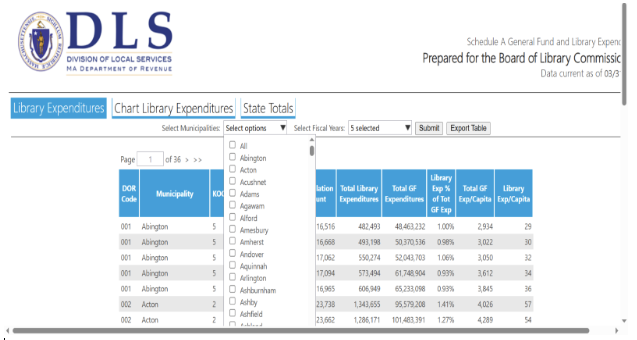
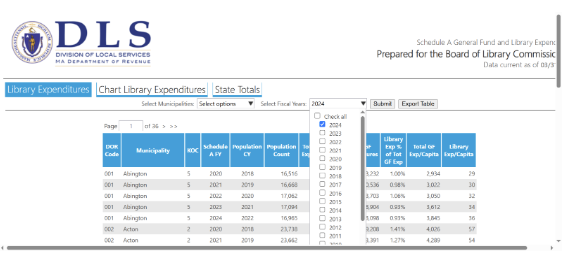
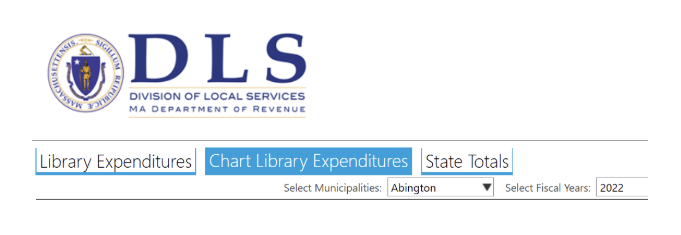
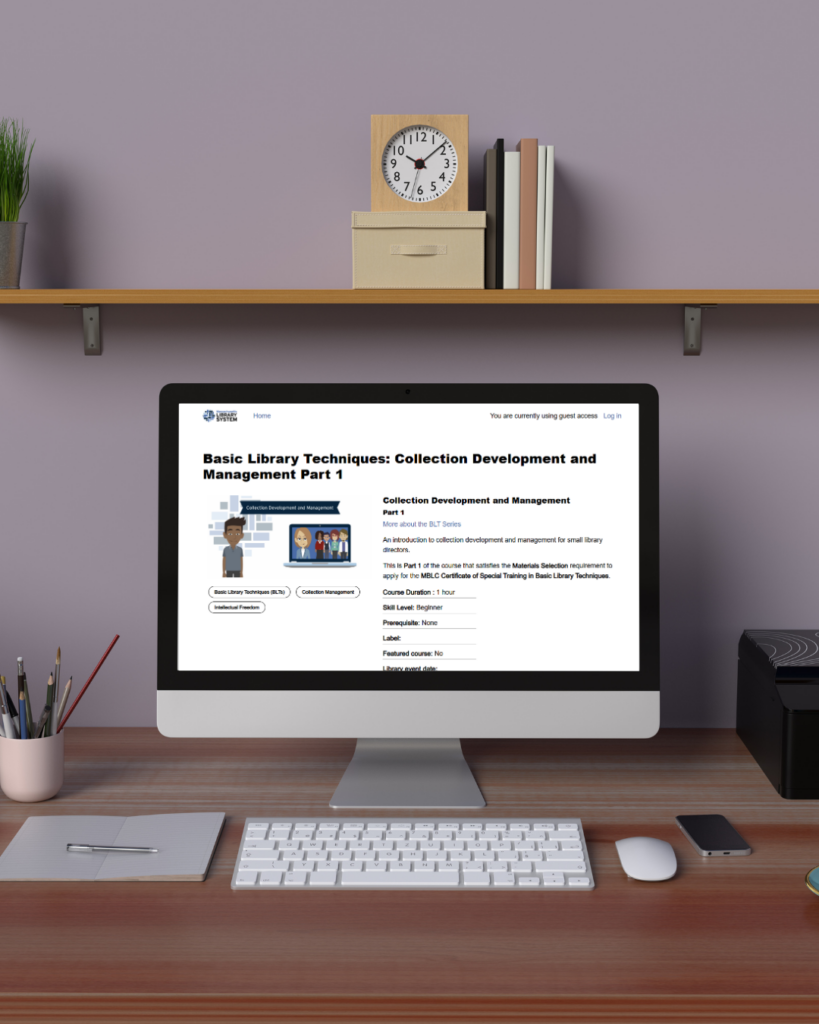
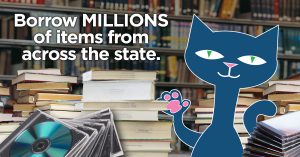
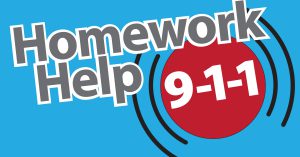 Whether you are in elementary school, middle school, high school, or college, you can always use a little help with your homework! Massachusetts libraries are here to help 24/7 with reliable information from our databases. Whether it’s art, geography, history, or science that you need help with, we have a variety of resources that are available on a wide range of subjects available for you around the clock!
Whether you are in elementary school, middle school, high school, or college, you can always use a little help with your homework! Massachusetts libraries are here to help 24/7 with reliable information from our databases. Whether it’s art, geography, history, or science that you need help with, we have a variety of resources that are available on a wide range of subjects available for you around the clock!